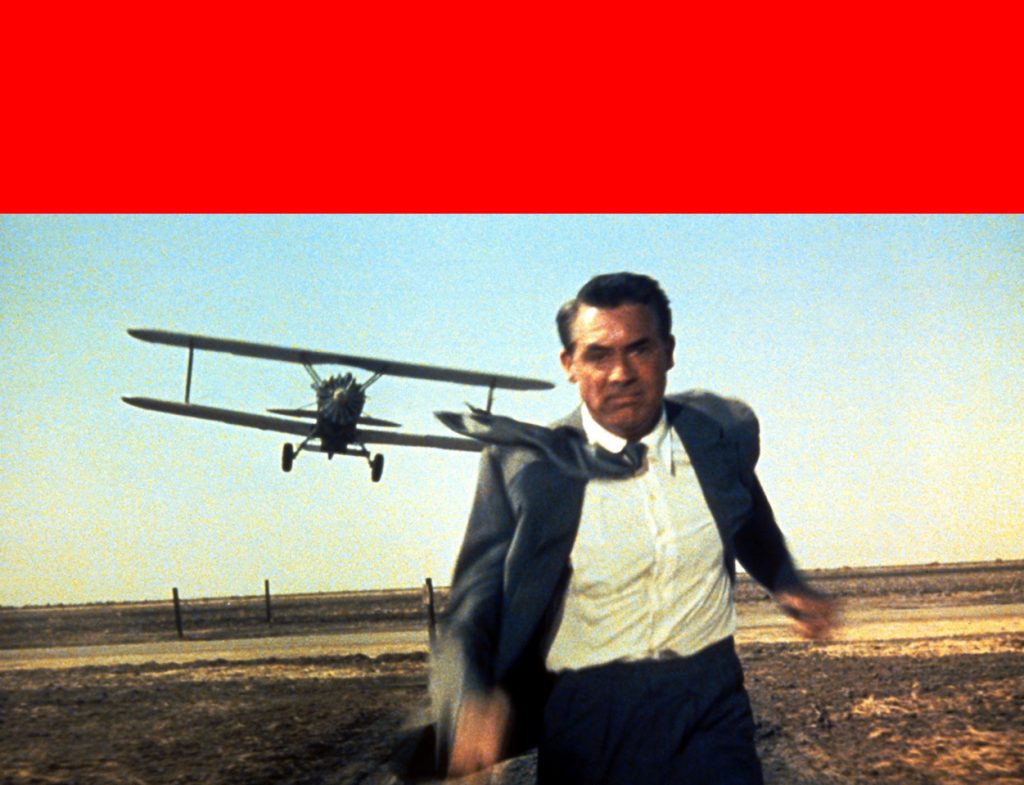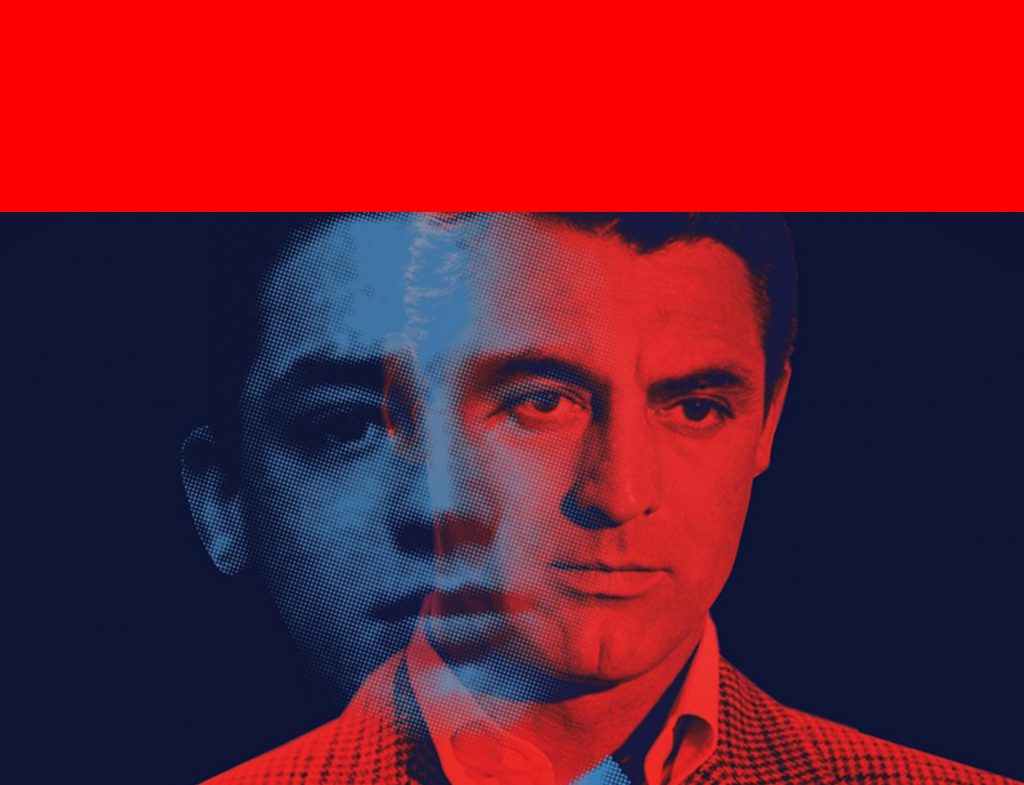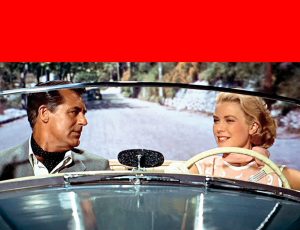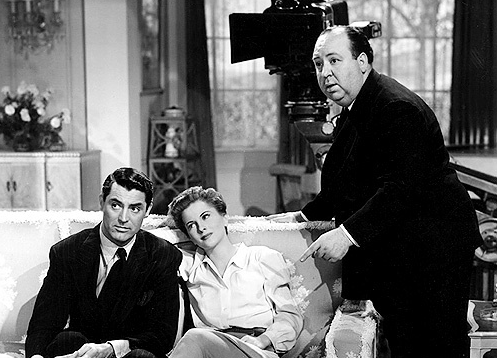Hitchcock and Cary Grant: “The Only Actor I Ever Loved”
Watershed, 1 Canon’s Rd, Bristol BS1 5TX
Saturday 24 November 2018, 10am
Tickets: £8 / £5 Concessions
Offer: £2 off for double bill with Suspicion.
THIS EVENT HAS ALREADY HAPPENED
Two illustrated talks by Mark Glancy and Kathrina Glitre exploring Cary Grant’s 20-year collaboration with Alfred Hitchcock, which led to some of their best and most iconic work, followed by a Q&A discussion chaired by broadcaster and writer Matthew Sweet.
Whilst usually associated with Hitchcock blondes – including co-stars Grace Kelly and Eva Marie Saint – Hitchcock is known to have had a dismissive attitude towards actors, seeing them as a “necessary evil” and comparing them to mannequins, children and even cattle. But Cary Grant was different. Their enduring relationship resulted in some of Grant’s finest performances and consolidated his persona as a serious actor, which led film-critic David Thomson to claim that he was the “best and most important actor in the history of cinema”. According to biographer Nancy Nelson, the feeling was mutual: “Grant prized his relationship with the director and proudly introduced him to George Barrie. Shortly before Hitchcock died, he told Barrie, ‘Knowing Cary is the greatest association I’ve had with any film actor. Cary is the only actor I ever loved in my whole life'”. These two talks explore their collaboration, drawing on archive material and close analysis of Cary Grant’s performances.
Casting Shadows: Alfred Hitchcock, Cary Grant and the Making of Suspicion
Mark Glancy (Queen Mary University, London)
Cary Grant made many bold moves in his career but one of the boldest was to collaborate with Alfred Hitchcock on Suspicion. In 1941, Grant was at the peak of his career, enjoying huge success with screwball comedies such as His Girl Friday (1940), My Favourite Wife (1940) and The Philadelphia Story (1940), as well as a reputation as the most handsome and charming of Hollywood stars. It was therefore a huge gamble for him to play the murderous cad of Suspicion and to allow Hitchcock to cast some very dark shadows on his debonair, romantic image.
Drawing on the collected papers of both Grant and Hitchcock, this talk explores the relationship between the star and director, the problems they encountered during the making of Suspicion, and the film’s reception and reputation. It will also look forward to the three further films that they made together – Notorious (1946), To Catch A Thief (1954) and North by Northwest (1959) – while making the case that Suspicion was the riskiest and darkest of them all.
Tall, Dark and Dangerous: From Screwball Comedy to Hitchcock Suspense
Kathrina Glitre (UWE Bristol)
Why is Cary Grant so good in Hitchcock films? What is it about his style of acting that suits these films so well? Hitchcock is often credited with spotting an untapped sinister quality in Grant’s star image, supposedly casting him against type in Suspicion (1941) – but the role of Walter Burns in His Girl Friday (Hawks 1940) already hints at a potentially sadistic streak.
Screwball comedy and suspense thrillers may seem an odd combination. While comedy tends towards an open sense of extrovert ‘showing off’, suspense favours introversion, requiring characters’ motivations to remain hidden. However, both genres emphasise instability, duality and deception, turning the everyday world upside down. Illustrated with clips from the films, this talk explores how Grant’s acting techniques enable quick switches in mood that create the moral ambivalence essential to Suspicion.
Contributors
 Mark Glancy is Reader in Film History at Queen Mary University of London. His book, Cary Grant: The Making of a Hollywood Legend, will be published by Oxford University Press in 2020. He was editorial consultant on Becoming Cary Grant (Yuzu Productions, 2017), and he has written articles about Grant’s career for The Many Cinemas of Michael Curtiz (Palmer & Pomerance, eds) and London on Film (Hirsch & O’Rourke, eds). His other publications include Hollywood & the Americanization of Britain, From the 1920s to the Present (Tauris, 2014), The 39 Steps: A British Film Guide (Tauris, 2003), When Hollywood Loved Britain: The Hollywood ‘British’ Film, 1939-45 (Manchester University Press, 1999), and, as co-editor with James Chapman and Sue Harper, The New Film History: Sources, Methods, Approaches (Palgrave, 2007).
Mark Glancy is Reader in Film History at Queen Mary University of London. His book, Cary Grant: The Making of a Hollywood Legend, will be published by Oxford University Press in 2020. He was editorial consultant on Becoming Cary Grant (Yuzu Productions, 2017), and he has written articles about Grant’s career for The Many Cinemas of Michael Curtiz (Palmer & Pomerance, eds) and London on Film (Hirsch & O’Rourke, eds). His other publications include Hollywood & the Americanization of Britain, From the 1920s to the Present (Tauris, 2014), The 39 Steps: A British Film Guide (Tauris, 2003), When Hollywood Loved Britain: The Hollywood ‘British’ Film, 1939-45 (Manchester University Press, 1999), and, as co-editor with James Chapman and Sue Harper, The New Film History: Sources, Methods, Approaches (Palgrave, 2007).
 Kathrina Glitre is Senior Lecturer in Film Studies at University of the West of England (UWE), Bristol. She likes to credit her career to Cary Grant, since he inspired the PhD research which lead to her first book, Hollywood Romantic Comedy: States of the Union (Manchester University Press, 2006). She is currently working on a project on screen acting, including essays on ‘Cary Grant: Acting style and genre in classical Hollywood cinema’ (2012) and ‘Character and the star vehicle: The impact of casting Cary Grant’ (forthcoming). Occasionally, she manages to write about other things too, including a chapter on colour for Neo-Noir (Wallflower Press, 2009), which she also co-edited. @UWEfilmculture
Kathrina Glitre is Senior Lecturer in Film Studies at University of the West of England (UWE), Bristol. She likes to credit her career to Cary Grant, since he inspired the PhD research which lead to her first book, Hollywood Romantic Comedy: States of the Union (Manchester University Press, 2006). She is currently working on a project on screen acting, including essays on ‘Cary Grant: Acting style and genre in classical Hollywood cinema’ (2012) and ‘Character and the star vehicle: The impact of casting Cary Grant’ (forthcoming). Occasionally, she manages to write about other things too, including a chapter on colour for Neo-Noir (Wallflower Press, 2009), which she also co-edited. @UWEfilmculture
Matthew Sweet is author of Inventing the Victorians (2001), Shepperton Babylon (2005) and The West End Front (2011). A familiar voice in British broadcasting, he presents Free Thinking and Sound of Cinema on BBC Radio 3 and The Philosopher’s Arms on BBC Radio 4. He has judged the Costa Book Award, edited The Woman in White for Penguin Classics and was Series Consultant on the Showtime/Sky Atlantic series Penny Dreadful. In the BBC2 drama An Adventure in Space and Time he played a moth from the planet Vortis. His most recent book Operation Chaos: The Vietnam Deserters Who Fought the CIA, the Brainwashers and Themselves (2018) is published by Picador. @DrMatthewSweet
You might also be interested in….
 |
 |
 |
|---|---|---|
| NORTH BY NORTHWEST AT THE PLANETARIUM INTRO BY MATTHEW SWEET |
BECOMING CARY GRANT AT UWE GLENSIDE CAMPUS WITH DIRECTOR Q&A |
TO CATCH A THIEF GALA SCREENING AT TRINITY CENTRE |
Celebrating Bristol’s recent designation as a UNESCO City of Film, in recognition of the city’s vibrant screen heritage, of which Cary Grant is one of our brightest stars.



